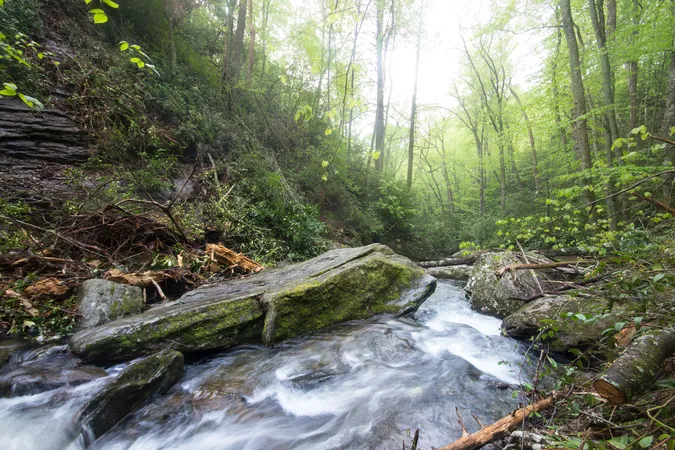
Southern States on the Edge: Water Resources Face Major Shifts, New Report Warns!
2024-12-12
Author: Jacques
Water is essential to life, yet its future is hanging in the balance. A recent report sheds alarming light on the impending changes to water quality and availability across the southern United States, signaling a critical need for action.
The report is part of the Southern Forest Outlook published by the USDA Forest Service and the Southern Group of State Foresters. A dedicated team of hydrologists, foresters, and economists meticulously analyzed water resources across 13 southern states, from Virginia to Texas, unveiling a stark picture of what's to come.
Key Findings
Key findings predict that:
Extreme Weather on the Rise
The frequency and severity of both droughts and floods are anticipated to increase, making water availability ever more unpredictable.
Vulnerable Watersheds
Regions in Arkansas, Louisiana, Oklahoma, and Texas are poised to experience the most pronounced decreases in streamflow by 2070, severely impacting local ecosystems and human livelihoods.
Land Use Crisis
Ongoing changes in land use are expected to exacerbate water quality issues, particularly in developing watersheds where urban development threatens to replace vital forests.
Climate Change Compounding Effects
The report warns that hydrologic changes could be intensified by natural disasters like hurricanes, rising sea levels, and pests, posing further risks to water resources.
Despite the grim outlook, there is hope. Researcher Peter Caldwell emphasizes that the implementation of well-established forestry best management practices can mitigate these impacts, preserving water quality and availability.
Using the Water Supply Stress Index model, experts explored various future scenarios from 2020 to 2070, highlighting that extreme weather could challenge current forestry practices. Caldwell underscores the importance of adaptive management strategies that leverage local knowledge to navigate these challenges effectively.
The Stakes Are High
The stakes are high as urbanization and climate change continue to reshape our landscapes. The report serves as a clarion call, advocating the need to maintain forests to safeguard our water supplies. Conversion of forest land to urban use has dire consequences, leading to increased pollution in waterways.
As the southern states prepare for an uncertain future, the report highlights the urgent need for informed decision-making based on reliable scientific data and community input. Protecting our forests is not just a matter of preserving nature; it’s a crucial strategy for ensuring safe, clean water for generations to come.
Conclusion
Will the southern states rise to the challenge? The time to act is now if we hope to secure our water future!









 Brasil (PT)
Brasil (PT)
 Canada (EN)
Canada (EN)
 Chile (ES)
Chile (ES)
 España (ES)
España (ES)
 France (FR)
France (FR)
 Hong Kong (EN)
Hong Kong (EN)
 Italia (IT)
Italia (IT)
 日本 (JA)
日本 (JA)
 Magyarország (HU)
Magyarország (HU)
 Norge (NO)
Norge (NO)
 Polska (PL)
Polska (PL)
 Schweiz (DE)
Schweiz (DE)
 Singapore (EN)
Singapore (EN)
 Sverige (SV)
Sverige (SV)
 Suomi (FI)
Suomi (FI)
 Türkiye (TR)
Türkiye (TR)